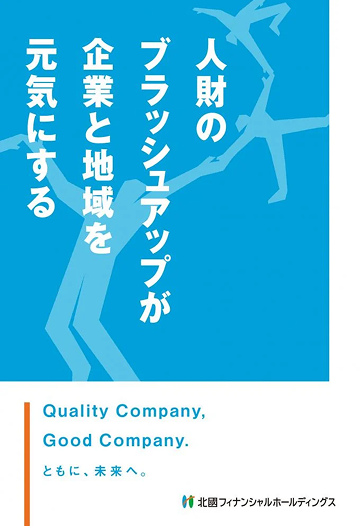Book Details
Refining Human Capital to Revitalise Businesses and Communities
-

- This summary has been generated using AI.This book traces the organisational, HR, and cultural transformation journey of Hokkoku Financial Group, initiated by the abolition of sales quotas. It presents a wide range of practical initiatives aimed at building a customer-centric business model—such as the shift in sales style, the overhaul of HR systems, the promotion of lifelong learning, and collaboration with local companies. Through these efforts, the group has fostered a corporate culture that values autonomy and dialogue, paving the way towards becoming a “quality company.”
- Published in 2022
Chapter 1: Turbulence Before Abolishing Sales Quotas
In 2015, the decision to abolish sales quotas caused significant disruption both inside and outside the organisation. Employees expressed concerns about the loss of targets and how performance would be evaluated, while some customers misunderstood the move as a withdrawal from active sales. The confusion was rooted in the earlier failure of the “ALL Sales” campaign, which had separated sales reform from HR reform. The abolition was not just a policy change—it was a strategic shift that enabled reallocation of resources towards people and technology, requiring a redesign of both mindset and organisational structure.
Chapter 2: Challenging Cultural Transformation
The group began transitioning from a traditional, results-driven model to a modern, customer-first culture. This included bold changes such as dissolving the sales department and establishing FD Advisory. Evaluation shifted from short-term outcomes to long-term relationship-building, with greater emphasis on process and trust. These reforms were not merely structural—they demanded a deep shift in values and behaviours, supported by continuous dialogue and strong leadership.
Chapter 3: HR Reform and Communication
In March 2022, a new career-based HR system was introduced, replacing seniority-based pay and retirement schemes with a role- and performance-based structure. Evaluations now incorporate multi-perspective reviews by leaders across departments, encouraging career autonomy. Tools like Microsoft Teams and groupware have enhanced information sharing and fostered a culture of psychological safety. Employees are increasingly empowered to speak openly, contributing to a more flexible and creative organisation.
Chapter 4: Lifelong Learning and Cross-Functional Collaboration
To support career development in the age of the “100-year life,” the group has established a robust lifelong learning framework. For example, it subsidises two-thirds of MBA tuition fees (up to ¥2 million), with 30 employees already enrolled. The internal side-job system, known as the “Collaboration Scheme,” allows staff to participate in cross-departmental projects, encouraging growth and innovation. These initiatives enable employees to shape their own careers while bringing fresh value to the organisation.
Chapter 5: HR Consulting for Local Businesses
The group also provides tailored HR development support to local companies. This includes etiquette training for younger staff, problem-solving workshops, and financial planning sessions for leadership teams. Programmes are customised to address specific challenges, and include follow-up support to ensure lasting impact. By helping businesses refine their evaluation systems and strengthen management capabilities, the group contributes to sustainable growth and talent retention in the region.
Chapter 6: Striving to Be a Quality Company
Under a philosophy that prioritises “quality over quantity,” the group continues to nurture a culture that balances community contribution with employee development. Liberal arts and philosophy are integrated into business thinking, and innovation is driven by dialogue and collaboration. The “20 Principles of Action,” established in 2008, are regularly reviewed to reflect contemporary values. Drawing on Hegel’s concept of Aufhebung, the group embraces conflicting ideas and seeks higher-level solutions—an approach that underpins its long-term organisational growth.
